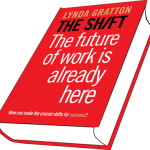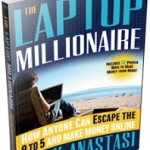
Interesting piece in the New York Times this weekend about high achievers who give retirement a try, only to go back and try something else work-related. This is of course a major theme of this website and the books and e-books associated with it.
I’ve dubbed those on the vanguard of this phenomenon (as of today) “retirement refugees,” because as you’ll see from the Times’ piece, these people may have given traditional retirement a shot, only to suffer from boredom within a few months of experiencing the supposedly blissful leisure pursuits of golf, bridge, daytime TV and reading whatever you want for hours on end. And yes, one person quoted by the Times even found Travel boring: see our Friday piece on this trend: Is Travel Overrated?
Just in the last week here at the Hub we’ve had several pieces touching on this theme. Friday before last, for instance, we ran the blog on the “Boomertirement Salon,” in which baby boomers who had long been salaried employees were looking to start all over as “Boomerpreneurs” in their early 60s (including Yours Truly.)
Also here at the Hub a few weeks earlier, we ran Sheryl Smolkin’s blog on her early retirement at 54, since followed up with another decade of writing, blogging and lately the launch of her Retirement Redux site.
In categorizing this blog, I found it difficult to narrow it down to one of the categories we’ve selected for the Hub. I’ve included it in Longevity & Aging because the two concepts go hand in hand: if you’re going to live longer and more healthily than generations did in the past, it stands to reason that you’ll want to keep your mind active and your social skills honed. Both can be accomplished by staying in the working world at least on a part-time basis, perhaps supplemented by charitable or philanthropic work or volunteering of one’s time or expertise.
I’ve also categorized this under Business Ownership rather than Decumulation, although in the transition from employee to business owner, you may need to draw down on your financial resources to make up any income shortfall: you can’t always invoice your sweat equity.
Driven achievers “fail” at traditional full-stop retirement
The NYT piece begins by focusing on Suzy Boerhoom, a registered nurse who retired “for the first time” after 35 years in health care, during which she owned some Curves exercise locations. Upon retirement, she spent five years helping her three daughters raise their own children. She’s now 66 but after getting bored being a full-time grandma in 2009 started Welcyon, Fitness After 50. She is quoted as saying she had “failed” at retirement, being one of those “driven achievers” who work because they love it, not necessarily because they need the money. (another major theme of this website).
Those inclined may want to download two short studies mentioned in the Times article: the AARP Work and Career Study and another study by Age Wave and Merrill Lynch on Work in Retirement.
If you do and feel moved to write a blog of your own on these themes, we would be delighted to run it here at the Hub. Let me know by emailing me at Jonathan@FindependenceDay.com.







